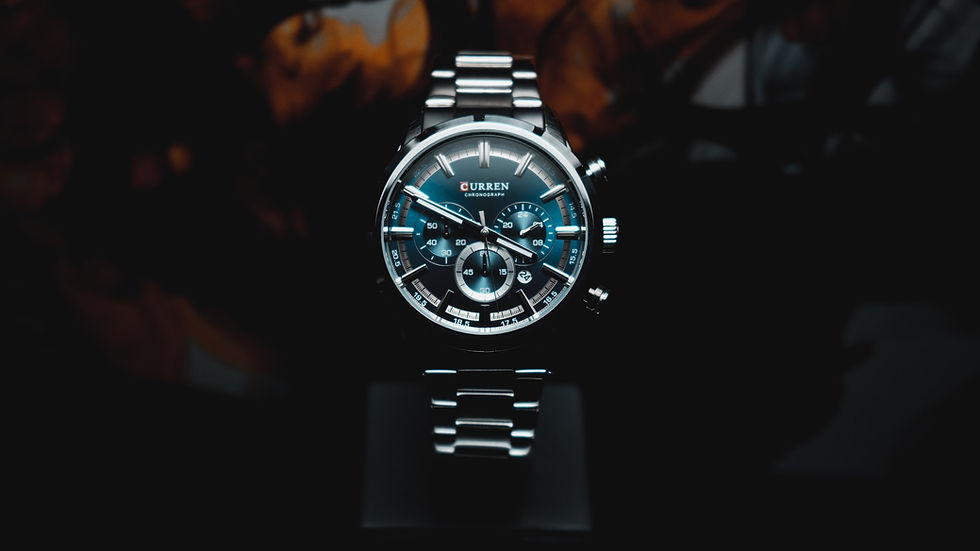Understanding Different Watch Movements
- consultantsoftime
- Mar 2, 2023
- 2 min read
Updated: May 18, 2024
One of the most important factors to consider when buying a watch, especially a luxury watch is the movement it uses. The movement refers to the mechanism inside the watch that keeps time and powers the watch's functions. There are two main types of movements: quartz and mechanical.
Quartz movements are powered by a battery and use a quartz crystal to keep time. They are known for their high accuracy and low maintenance requirements. Quartz movements use an oscillator, a tiny piece of quartz crystal, to generate a precise electrical signal that drives the motor of the watch.
The lifespan of a quartz movement can vary depending on several factors, such as the quality of the battery and the frequency of use. On average, a quartz movement battery lasts between 2-3 years. However, with proper care and maintenance, a quartz battery can last up to 5 years or longer.
Quartz movements do not have the same level of craftsmanship and complexity as mechanical movements which means that they are relatively inexpensive, making them a popular choice for price-conscious buyers.
Mechanical movements, on the other hand, are powered by a mainspring and use gears and wheels to keep time. These movements are more complex and require more skill to manufacture and maintain therefore they are more expensive than quartz movements. Although mechanical movements are more complex and expensive, they aren't as accurate as quartz movements.
Mechanical watches can be further divided into two types: manual and automatic. Manual mechanical watches require the user to wind the mainspring by hand to keep the watch running. Automatic mechanical watches are self-winding, meaning they are powered by the movement of the wearer's wrist. This eliminates the need to manually wind the watch and makes them more convenient.
The lifespan of a mechanical watch can vary depending on the quality and care of the watch. With proper care and regular maintenance, a mechanical watch can last for decades or even centuries. However, if not properly maintained, a mechanical watch can stop working or require costly repairs. It is recommended to have a mechanical watch serviced every 4-6 years to ensure optimal performance and longevity.
Both quartz and mechanical movements have their advantages and disadvantages, and the choice between them will depend on the individual's needs and preferences. Quartz movements are more accurate and require less maintenance, while mechanical movements are more complex and elegant at a higher price point.



